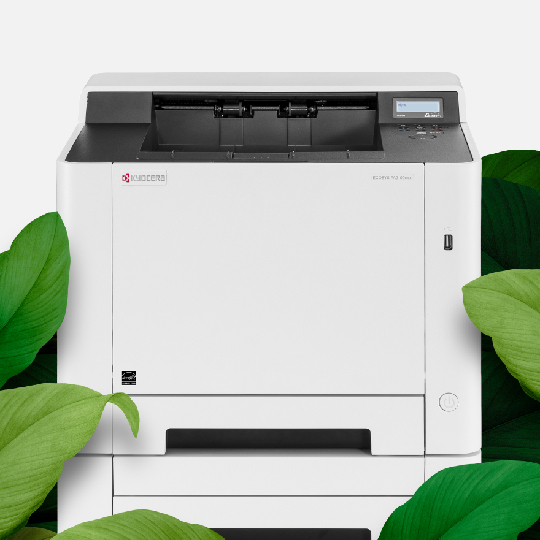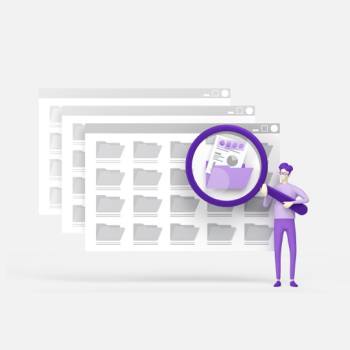In today’s digital era, managing documents and data is a daily challenge facing organisations. Enterprise content management (ECM) helps businesses stay organised by streamlining document workflows, improving access control, and enabling full lifecycle management of content.
More importantly, ECM is the backbone of digital transformation. As businesses shift to paperless processes and hybrid work models, ECM systems make it possible to stay efficient and safe.
How ECM powers digital transformation
One of the most valuable benefits of ECM is its ability to automate tasks, eliminating the need for repetitive, manual document handling. By streamlining these processes, businesses also minimise the risk of human error, such as the misfiling of a document.
These two ECM solutions from Kyocera showcase how businesses can modernise their content workflows and adapt to the digital era:
1. Kyocera Cloud Information Manager (KCIM)
KCIM enables the digitisation of physical documents, helping businesses convert paper files into accessible digital assets. Employees can instantly search, access, and collaborate on documents, whether they’re in the office or working remotely. This solution is ideal for businesses looking to improve document control and support hybrid work environments.
2. Kyocera Enterprise Information Manager (KEIM)
KEIM enables businesses to digitise, store, and retrieve information seamlessly, reducing the need for physical documents while enhancing data accessibility and security. With KEIM, businesses can set up automated workflows for processes like document approval, contract management, and invoice processing.
Securing your business in the digital era
As businesses embrace the digital era, data security has become a top priority. Cyberattacks are increasing in both volume and sophistication across Europe, making it critical for organisations to protect their content and systems. ECM plays a vital role here, offering secure frameworks for managing content.
For one, ECM enables businesses to digitise, store, and retrieve information seamlessly, reducing the need for physical documents. This is beneficial, as physical files are prone to damage and misplacement. By using a content management system, businesses can also manage user permissions, ensuring that only authorised personnel can access specific documents.
ECM is the backbone of digital transformation.”
Still, many organisations remain underprepared. According to the World Economic Forum, only 14% of organisations feel confident they have the people and skills needed to meet their security requirements. This makes the case for robust, easy-to-deploy ECM solutions even stronger. After all, businesses should be empowered to protect their data without overburdening
their teams.
Sustainability that aligns with your digital transformation
As environmental pressures grow, businesses are expected to reduce their footprint, and that includes how they manage content. ECM helps companies reduce their environmental impact by minimising reliance on paper and physical storage. When combined with energy-efficient multifunctional printers (MFPs) like Kyocera’s ECOSYS range, businesses can achieve an integrated, sustainable content management strategy that aligns with digital transformation goals.

Sustainable printing, without compromise
With compact design, quiet performance, and long-life components, Kyocera’s ECOSYS A4 printers offer speed, reliability, and sustainability. Over 30 years on, ECOSYS continues to help businesses reduce waste, meet green goals, and support a more eco-friendly future – one print at a time.
Why ECM is essential for the modern business
In the digital era, staying competitive means staying organised, secure, and sustainable. ECM provides the foundation for this, streamlining workflows, safeguarding data, and reducing reliance on paper.
To see how Kyocera ECM solutions can be integrated into your current work environment, don’t hesitate to reach out to one of our experts!
Enterprise Content Management
Get your answers below!
1. What is ECM?
Enterprise content management (ECM) refers to the tools, capabilities and strategies used to capture, organise, store, and automate business content. These solutions help structure unorganised data, unlocking new value and insights that were previously difficult to access.
2. What is the difference between ECM and document management solutions?
While document management solutions focus on handling specific files and workflows, ECM encompasses the broader strategy for managing all types of content across the organisation. ECM covers the full lifecycle of all business content across departments and integrates tools for automation, compliance, collaboration, and analytics.
3. What should I consider when choosing an ECM solution?
Selecting the right ECM solution is essential for long-term digital transformation. Start by ensuring the system is scalable, so it can grow with your business needs.
Check its integration capabilities; your ECM should connect smoothly with existing tools.
An intuitive user experience is key for adoption across teams, so look for a platform that simplifies, not complicates, content management.
Strong security features are non-negotiable; choose a solution that offers encryption, access controls, and compliance-ready functionality.



